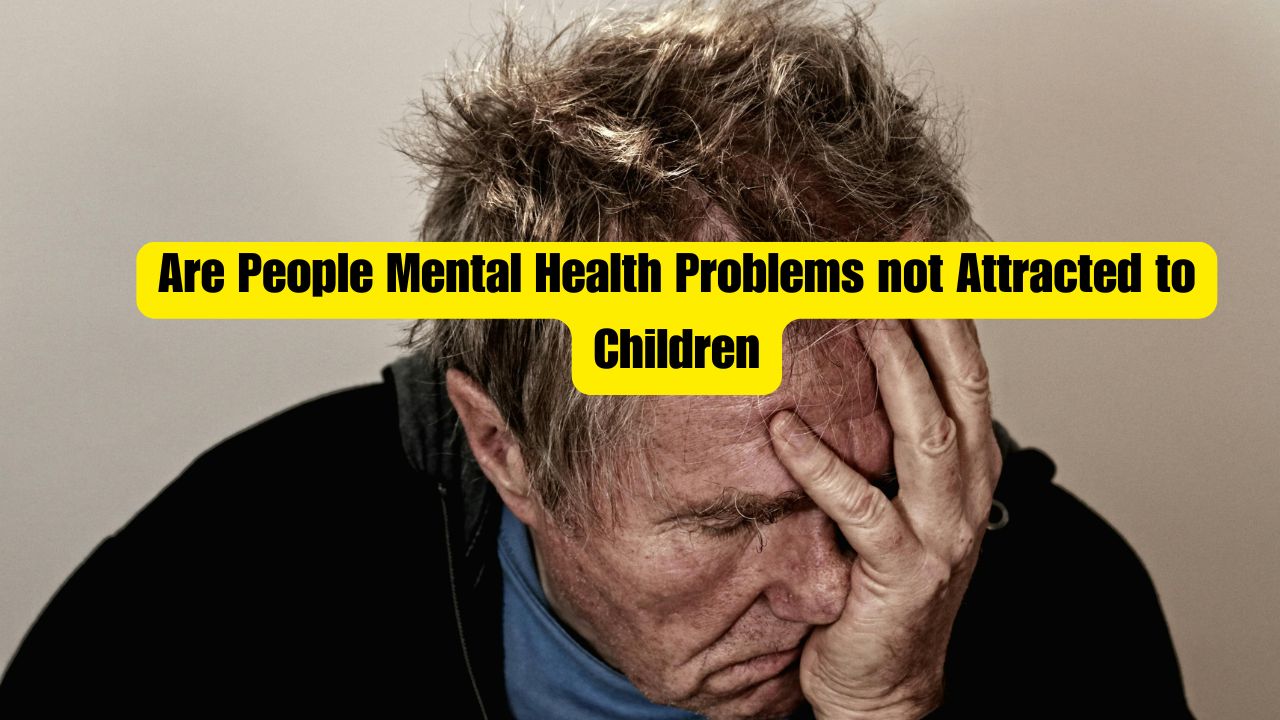Understanding the Intersection of Mental Health and Human Attraction
Mental health is a multifaceted and often misunderstood domain of human well-being. When discussing attraction and its nuances, especially regarding societal assumptions or stigmas, it’s critical to approach the topic with sensitivity, research-backed insights, and clarity. A common misconception revolves around whether people with mental health issues inherently lack or display unhealthy attractions toward children. This article delves deeply into the subject, debunking myths while highlighting the importance of understanding mental health in its entirety.
What Is Mental Health, and Why Is It Important?
Mental health encompasses emotional, psychological, and social well-being. It affects how individuals think, feel, and behave in their daily lives. According to the World Health Organization (WHO), mental health is not just the absence of mental illness but also the ability to handle stress, maintain relationships, and make sound decisions.
Key facts about mental health:
- It influences every aspect of life, from personal relationships to professional endeavors.
- Mental health conditions vary widely, including anxiety, depression, bipolar disorder, and schizophrenia.
- Stigmatization of mental health issues often leads to misconceptions about individuals living with these conditions.
Debunking the Myth: Are Mental Health Issues Linked to Pedophilia?
What Is Pedophilia?
Pedophilia is a psychiatric disorder characterized by a primary or exclusive sexual attraction to prepubescent children. It is categorized under paraphilic disorders in the DSM-5 (Diagnostic and Statistical Manual of Mental Disorders). It’s crucial to distinguish this condition from general mental health issues, as they are not synonymous.
The Facts About Mental Health and Attraction
- Mental health problems do not dictate sexual orientation or preferences.
Mental health conditions such as depression or anxiety are unrelated to pedophilic tendencies. Conflating the two perpetuates harmful stereotypes. - Pedophilia is not caused by common mental health disorders.
Research shows no direct link between conditions like bipolar disorder or schizophrenia and pedophilia. Such connections are often exaggerated or misunderstood in public discourse. - Most people with mental health conditions are non-violent and pose no harm to others.
The assumption that mental illness increases the likelihood of harmful behavior, including pedophilia, is both unfounded and damaging.
The Role of Misconceptions in Perpetuating Stigma
Societal Misunderstandings
Misconceptions about mental health can lead to widespread stigma. Terms like “crazy” or “unstable” are unfairly applied to individuals with mental health conditions, further alienating them. When these stereotypes intersect with topics like attraction, they create a toxic environment that hinders meaningful conversations.
Media and Misinformation
The portrayal of individuals with mental health issues in movies, news, and popular media often skews public perception. Sensationalized stories linking mental illness to criminal behavior amplify these inaccuracies.
Scientific Insights Into Mental Health and Behavioral Tendencies
Understanding the Brain and Mental Health
Modern neuroscience provides a clearer understanding of mental health conditions. Disorders like anxiety or depression result from chemical imbalances, genetics, and environmental factors—not from inherent moral failings or dangerous tendencies.
Research on Pedophilia
Studies indicate that pedophilia is linked to specific neurodevelopmental anomalies rather than generalized mental health conditions. This distinction is critical to avoid unfairly associating mental illness with inappropriate attractions.
Psychological Support for Individuals
For those living with either mental health conditions or paraphilic disorders, early intervention, therapy, and support systems are essential. Cognitive Behavioral Therapy (CBT) and specialized counseling can address underlying issues and promote healthier behaviors.
The Importance of Education and Awareness
Breaking the Stigma
Educational campaigns can play a pivotal role in dispelling myths. By focusing on evidence-based information, society can foster a more supportive and inclusive environment for individuals with mental health challenges.
Promoting Mental Health Literacy
- Encourage open conversations about mental health to normalize seeking help.
- Educate communities on the differences between mental health issues and specific disorders like pedophilia.
- Combat misinformation by relying on reputable sources, such as scientific journals and mental health organizations.
Key Takeaways
- Mental health problems and pedophilia are distinct issues. Conflating them perpetuates harmful stereotypes and stigmas.
- Education and awareness are vital to breaking down societal misconceptions about mental health.
- Support systems and early intervention can improve the lives of those dealing with mental health conditions or paraphilic disorders.
Conclusion
Understanding mental health requires compassion, education, and a commitment to challenging harmful stereotypes. People with mental health issues deserve empathy and support, not unjust assumptions or stigmatization. By fostering open conversations and relying on evidence-based research, society can create an environment where mental health is understood, and myths are dismantled.
